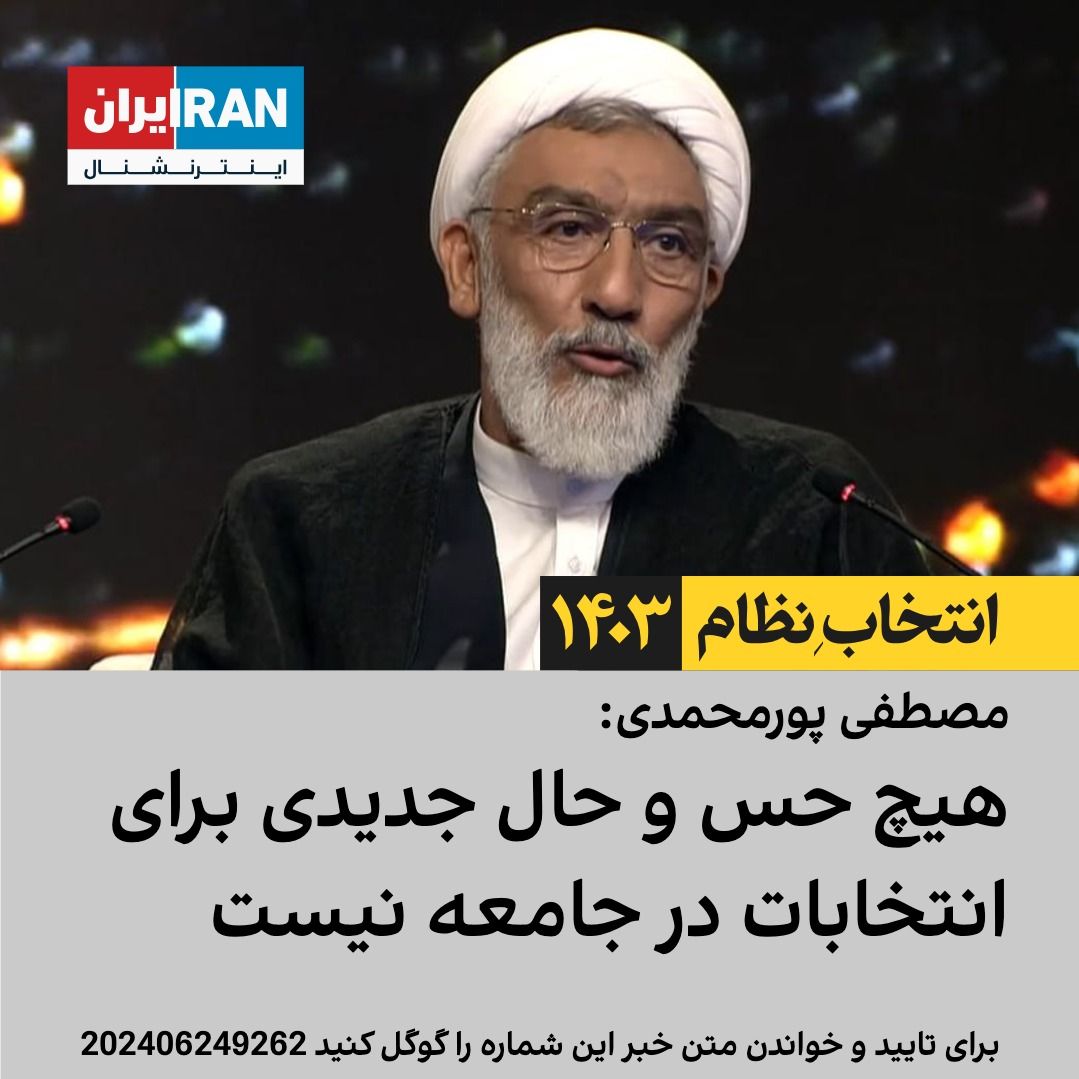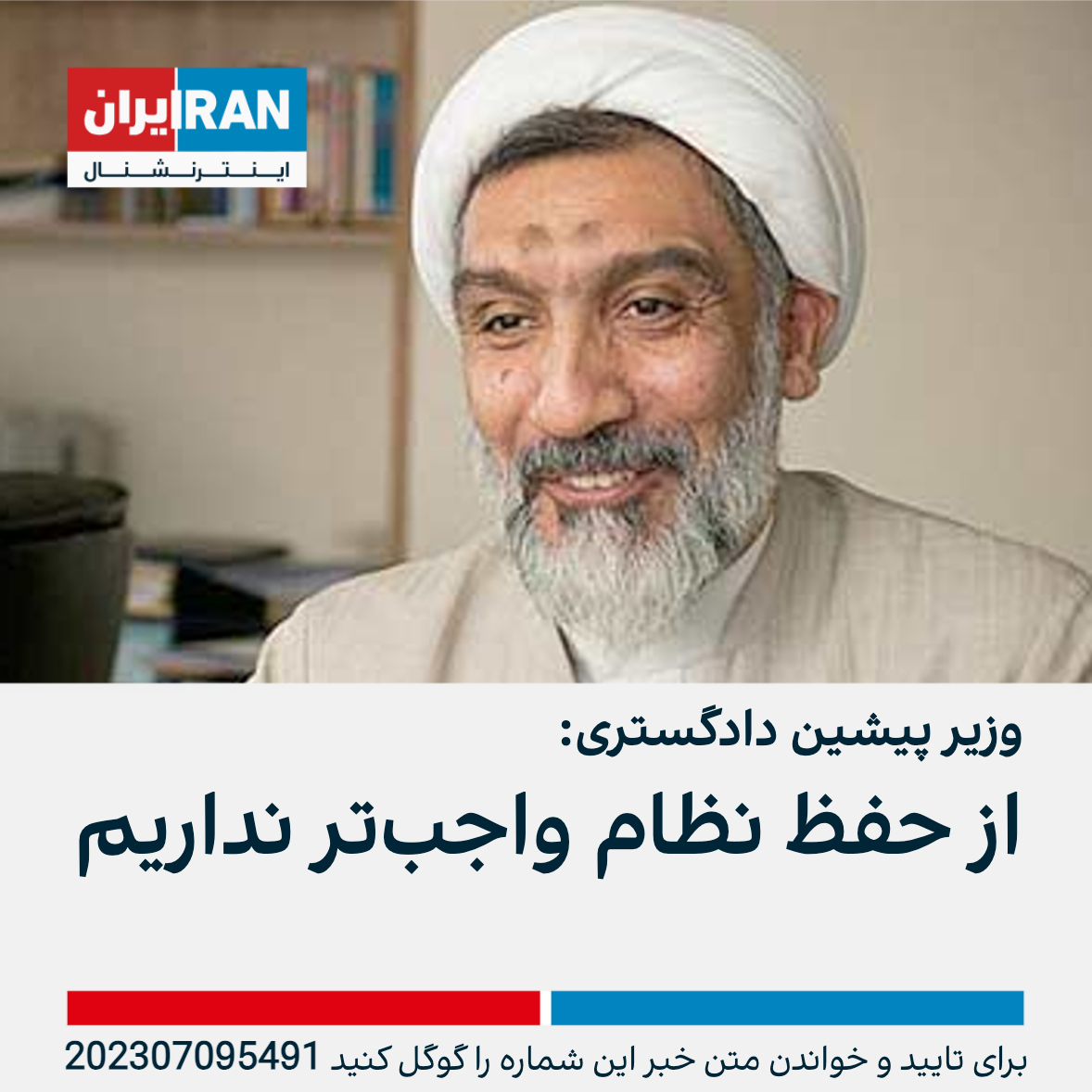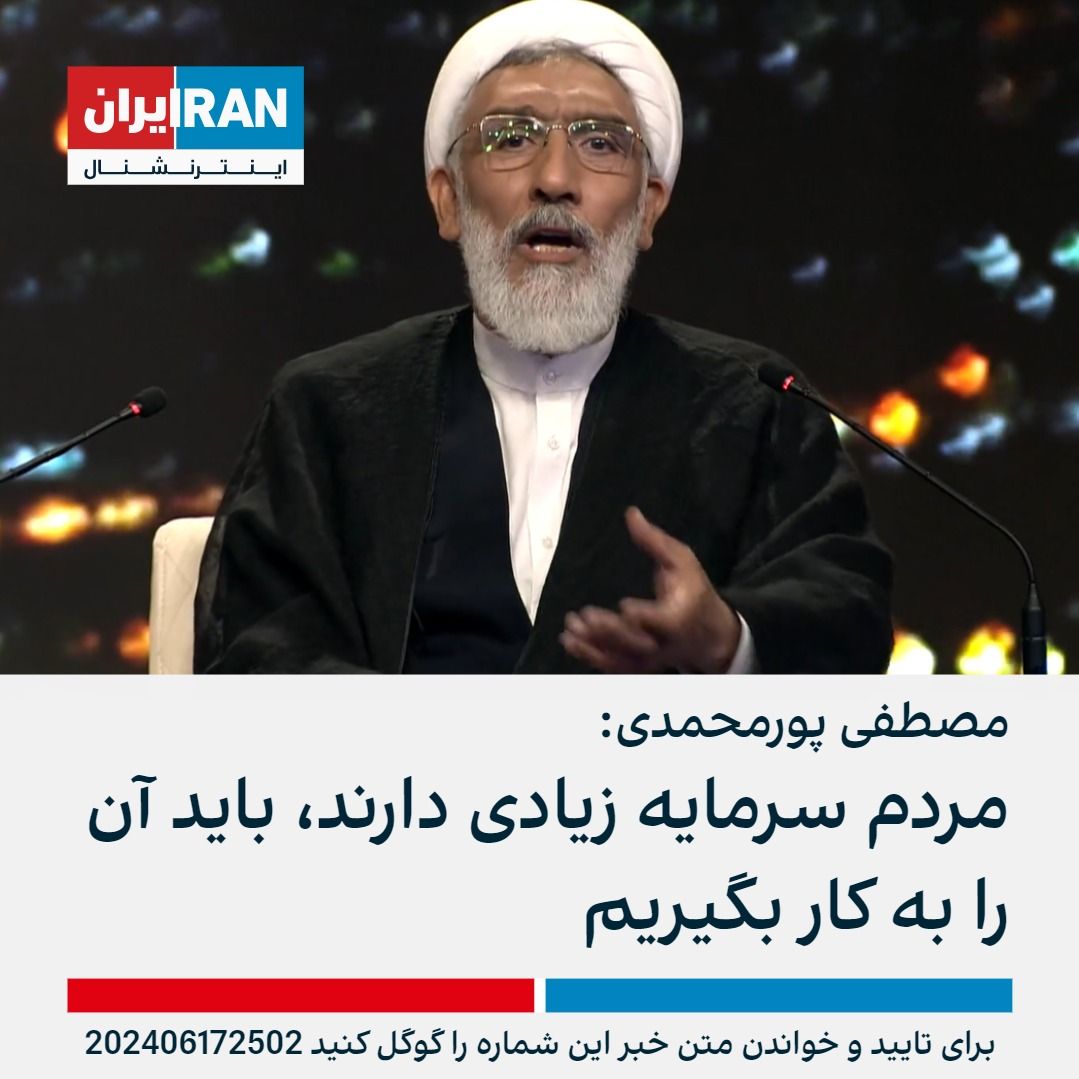When we think about public life and people who have spent a good deal of time in government roles, figures like مصطفی پورمحمدی often come to mind. He is, you know, someone who has been around the block a few times in Iran's political and legal systems. His career spans a considerable period, touching on various important parts of how the country operates. It's really something to think about the breadth of experience he holds.
For many, trying to get a handle on the lives of people who hold significant public positions can feel a bit like looking at a complex picture. There are so many layers, different roles, and a long timeline to consider. This particular individual, مصطفی پورمحمدی, has certainly had a varied path, serving in different capacities that have, in some respects, shaped parts of the nation's direction. It's interesting to see how these careers unfold.
This piece aims to give you a clearer picture of مصطفی پورمحمدی, looking at his background, the many jobs he has held, and what his time in public service has meant. We'll try to keep things pretty straightforward, offering insights into his journey and the impact he has had. You might find it helpful to get a sense of who this person is and what he represents in the broader context of public service.
Table of Contents
- A Bit About His Life Story
- His Path Through Public Service
- What roles has مصطفی پورمحمدی held over the years?
- How has مصطفی پورمحمدی influenced national discourse?
- What are some of the key perspectives associated with مصطفی پورمحمدی?
- How People See Him and What He Leaves Behind
- What Might Be Next
A Bit About His Life Story
Getting to know someone often starts with where they come from and how they grew up. مصطفی پورمحمدی, born in Qom, Iran, has roots in a city known for its deep religious and scholarly traditions. This background, you know, really played a big part in shaping his early life and, quite possibly, his outlook on public service. He received an education that focused on religious studies, which is pretty common for many who enter public life in Iran. This kind of schooling typically involves a lot of learning about Islamic law and philosophy, providing a very specific kind of foundation.
His formative years, basically, were spent in an environment that valued learning and religious devotion. This period of his life, it's fair to say, laid the groundwork for his future career. He didn't just pick up facts; he absorbed a way of thinking and a set of values that would guide his choices later on. It’s almost like, you know, he was preparing for a very particular kind of role without perhaps even realizing it fully at the time. This kind of upbringing tends to influence a person's entire trajectory, especially when they step into the public eye.
Understanding his beginnings helps us get a better sense of the person behind the public title. It gives a little more depth to the story of مصطفی پورمحمدی, helping us to see him not just as a figure in government, but as someone with a personal history that shaped who he became. This personal background, in a way, is just as important as the list of jobs he has held.
Personal Details and Bio Data of مصطفی پورمحمدی
| Full Name | مصطفی پورمحمدی (Mostafa Pourmohammadi) |
| Date of Birth | 1959 |
| Place of Birth | Qom, Iran |
| Education | Religious studies (Hawza education) |
| Nationality | Iranian |
His Path Through Public Service
مصطفی پورمحمدی's journey in public service has been, you know, quite a long one, marked by a series of roles that put him at the heart of Iran's governmental structure. He started out in positions that were, in some respects, related to the country's justice system and intelligence services. These early jobs typically involve a lot of responsibility and require a deep grasp of legal matters and national security concerns. It's pretty clear that from the start, he was involved in sensitive areas of government work.
As time went on, he moved into more prominent roles, taking on responsibilities that had a wider reach. His career shows a clear progression, from specific operational duties to positions that required more strategic thinking and policy making. This kind of progression, you know, suggests a person who is trusted with increasing levels of authority and who has, perhaps, shown a capacity for handling complex situations. It’s not every day someone moves through so many different, yet connected, parts of government.
His time in various ministries and organizations has given him a very broad perspective on how the country runs. He has, basically, seen things from many different angles, which could be a big advantage when it comes to making important decisions. This extensive background in public service is, in a way, a defining feature of مصطفی پورمحمدی's public identity. It's fair to say his career has been a significant part of his life story, and that, is that.
What roles has مصطفی پورمحمدی held over the years?
When you look at the career of مصطفی پورمحمدی, you see a long list of important jobs. He has, you know, served in some pretty key positions within the Iranian government, which really shows how much trust has been placed in him over time. One of his early significant roles was in the intelligence sector, where he held important posts, basically dealing with matters of national security. This kind of work is, as a matter of fact, very sensitive and requires a particular kind of temperament.
Later on, he moved into the justice system, taking on responsibilities that put him in charge of legal processes and judicial oversight. This shift, you know, highlights his ability to adapt to different governmental functions, moving from intelligence work to legal administration. It's like, he's been involved in both the information gathering side and the rule-making side of things. He also spent time as a Minister of Justice, which is a big job, overseeing the legal framework of the country. This role, obviously, comes with a lot of weight.
Beyond that, مصطفی پورمحمدی has also served as the Minister of Interior, a position that involves managing domestic affairs, including law enforcement and local governance. This particular role is, quite literally, about keeping things running smoothly inside the country. He has, as I was saying, been involved in so many different parts of the government, from intelligence to justice to internal affairs. It gives him, you know, a very wide view of how the nation operates, and that's pretty remarkable.
How has مصطفی پورمحمدی influenced national discourse?
People who hold significant public roles often, you know, shape how a country talks about important issues, and مصطفی پورمحمدی is no exception. His long history in government, particularly in areas like intelligence and justice, means he has, in some respects, been part of many big conversations over the years. When he speaks, people tend to listen, because he brings a certain kind of authority and experience to the table. His views, basically, carry weight due to his background and the positions he has held.
He has, you know, often contributed to discussions about legal reforms, security policies, and the overall direction of the nation. His involvement in these talks can, arguably, influence the way policies are formed and how they are talked about in public. It’s not just about what he says, but also the perspective he offers, which is shaped by years of direct involvement in sensitive government operations. This makes his voice, you know, a key part of the national conversation, especially on matters of law and order.
The very presence of مصطفی پورمحمدی in public life, basically, reminds people of a certain period and approach to governance. His statements, his public appearances, and his actions all contribute to the ongoing dialogue about how the country should be run. He has, you know, been a consistent figure in a changing landscape, and that consistency, in a way, helps to set a tone for certain kinds of discussions. His impact on national discourse is, therefore, tied to his long and varied career in public service.
What are some of the key perspectives associated with مصطفی پورمحمدی?
When you consider مصطفی پورمحمدی, certain viewpoints and approaches tend to come to mind, largely shaped by his career in security and legal roles. He is, you know, often associated with a focus on stability and order within the country. His background in intelligence and judicial matters means he has, pretty much, always been involved in maintaining the framework of the state. This often leads to a perspective that prioritizes national security and the rule of law, as he sees it.
His public statements and actions often reflect a commitment to the established system, emphasizing the importance of adherence to existing regulations and structures. This means, you know, he tends to approach issues from a standpoint that values a steady hand and a clear set of rules. It’s like, his career has taught him the importance of a strong, organized system. He has, basically, been a part of the machinery that keeps things running, and that experience, in a way, shapes his outlook on what's best for the country.
So, when you hear about مصطفی پورمحمدی, you might think of someone who is, you know, very much about maintaining the status quo and ensuring that things operate according to a specific framework. His perspectives are, in some respects, rooted in his long history of upholding state authority and ensuring internal security. He is, as a matter of fact, a figure who embodies a particular approach to governance, one that emphasizes order and the strict application of laws, and that's just a little bit of what he represents.
How People See Him and What He Leaves Behind
The way people view public figures like مصطفی پورمحمدی can be, you know, quite varied, depending on their own experiences and beliefs. For some, his long service in government, especially in sensitive roles, might suggest a person who is dedicated to the country's security and stability. They might see him as a steadfast figure, someone who has, basically, been a consistent presence through different periods. This perspective, obviously, values his commitment to the system.
On the other hand, because of the specific roles he has held, particularly in intelligence and the judiciary, there are also, you know, different opinions about his past actions and decisions. Public perception is, as you know, often complex and can be influenced by many factors, including historical events and political leanings. It's like, people remember different things, and those memories shape how they feel about someone. So, while some may appreciate his long service, others might have concerns related to specific periods of his career.
What مصطفی پورمحمدی leaves behind, basically, is a record of decades spent at the heart of Iran's governmental apparatus. His legacy is, in a way, tied to the various policies and decisions made during his time in power. It's something that will, you know, be looked at and discussed by historians and analysts for years to come. His impact, whether seen as positive or negative by different groups, is undeniably a part of the country's recent history, and that, is pretty much the case.
What Might Be Next
For someone like مصطفی پورمحمدی, who has spent so much of his life in public service, the question of what comes next is, you know, always an interesting one. Even after holding many high-level positions, individuals with such extensive experience often remain involved in public life, perhaps in different capacities. They might, basically, continue to offer advice, participate in public discussions, or take on advisory roles that leverage their deep understanding of government workings. It's not uncommon for such figures to remain influential.
His future involvement, therefore, could take many forms. He might, you know, continue to be a voice in political debates, or perhaps serve on various councils or committees. Given his background, any future role would likely involve areas where his expertise in law, security, or internal affairs would be most relevant. It’s like, once you've been in the game for so long, you never truly leave it. His experience is, you know, a valuable asset that could be called upon for various purposes.
So, while we can't say for sure what exactly lies ahead for مصطفی پورمحمدی, it's pretty safe to assume that his long history in public service means he will, in some respects, continue to be a figure of interest. His past contributions and his deep knowledge of the system mean he's always someone to keep an eye on, especially when it comes to discussions about Iran's future direction. He's, basically, a veteran of the system, and those types of individuals usually remain part of the conversation, anyway.
This article has aimed to provide a comprehensive look at مصطفی پورمحمدی, covering his personal background, his long and varied career in public service, the significant roles he has held, and how he has influenced national discourse. We've also touched on the different perspectives people hold about him and what his legacy might entail, as well as considering what his future involvement in public life could look like. The goal was to give you a clearer, more human-centric understanding of this important public figure.



